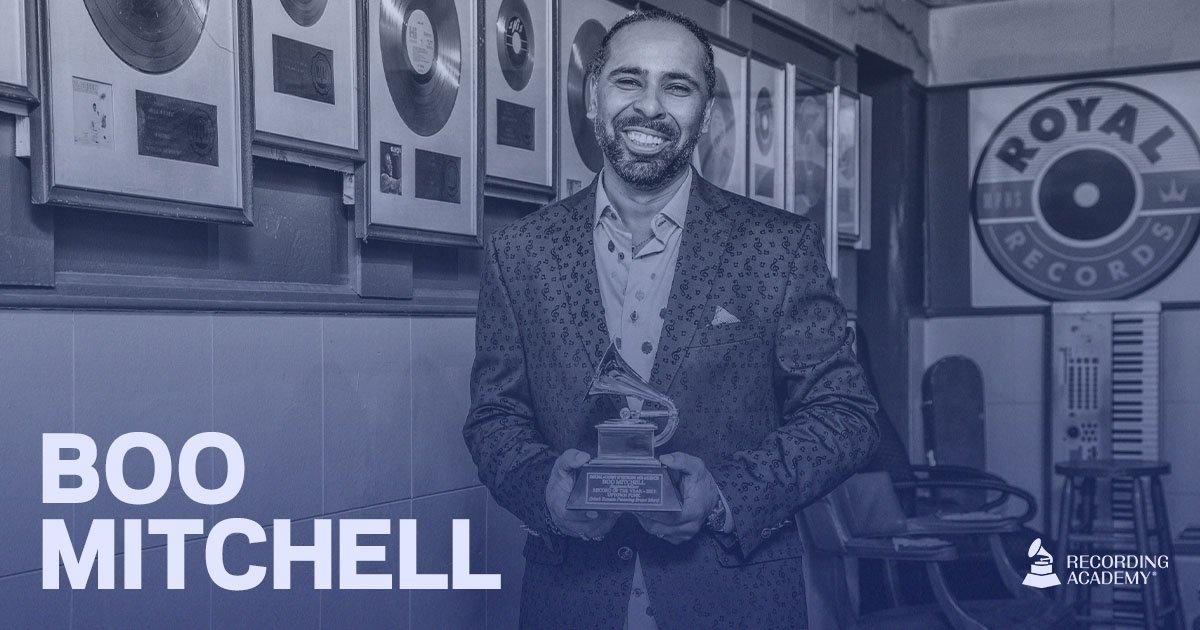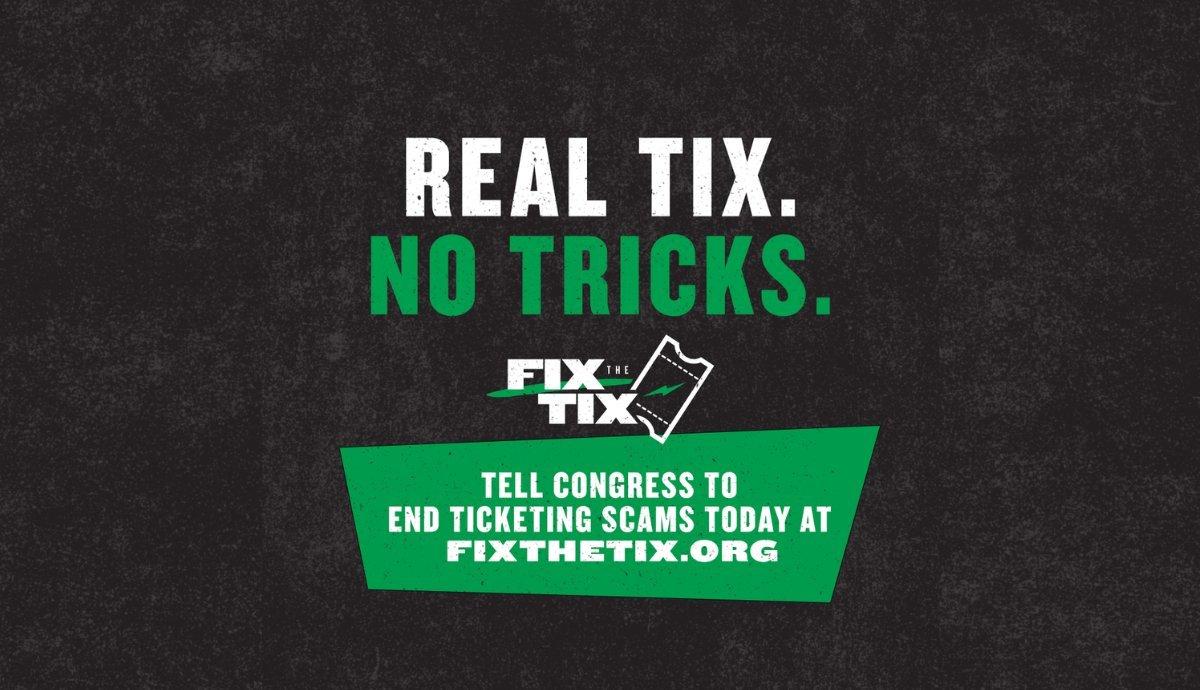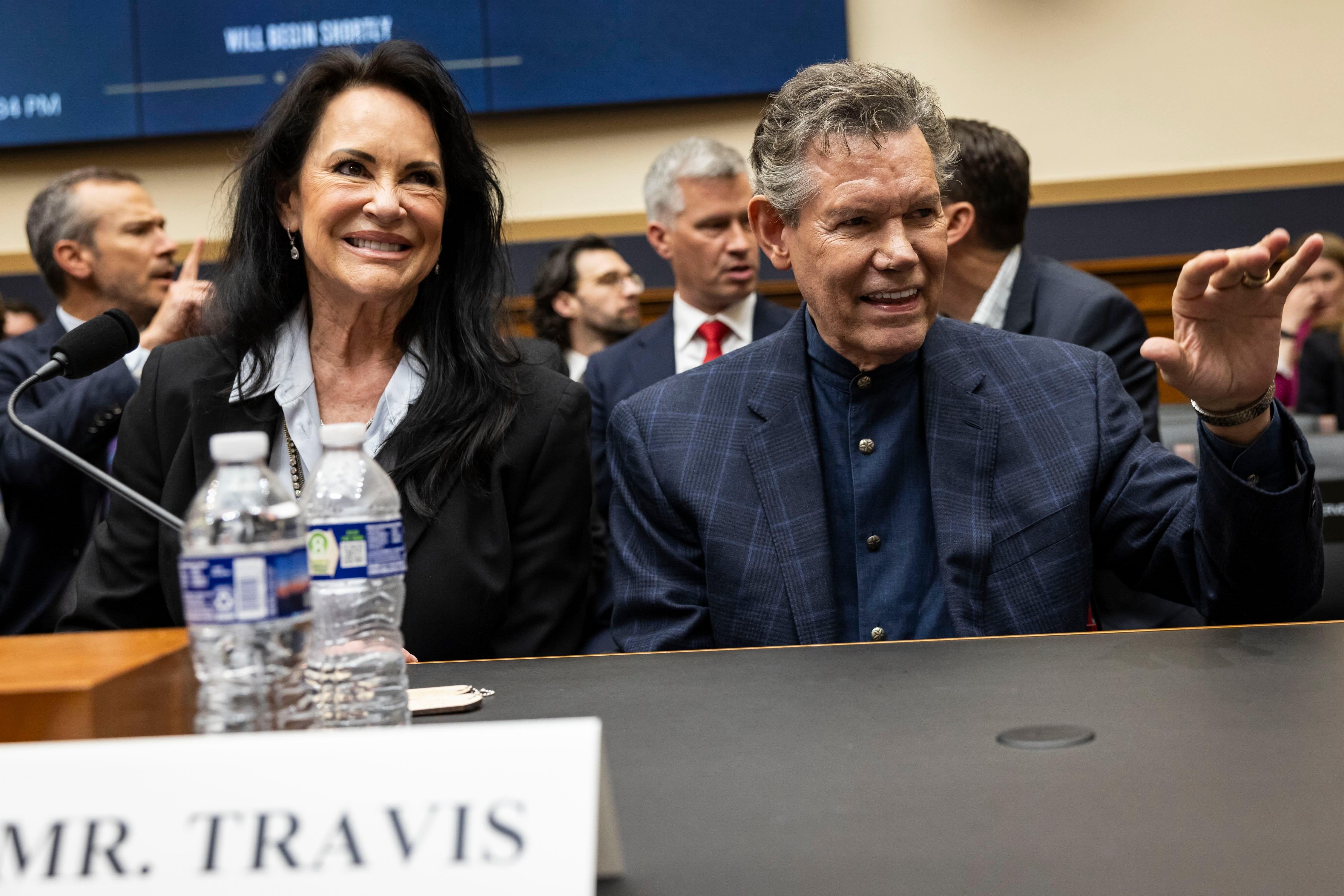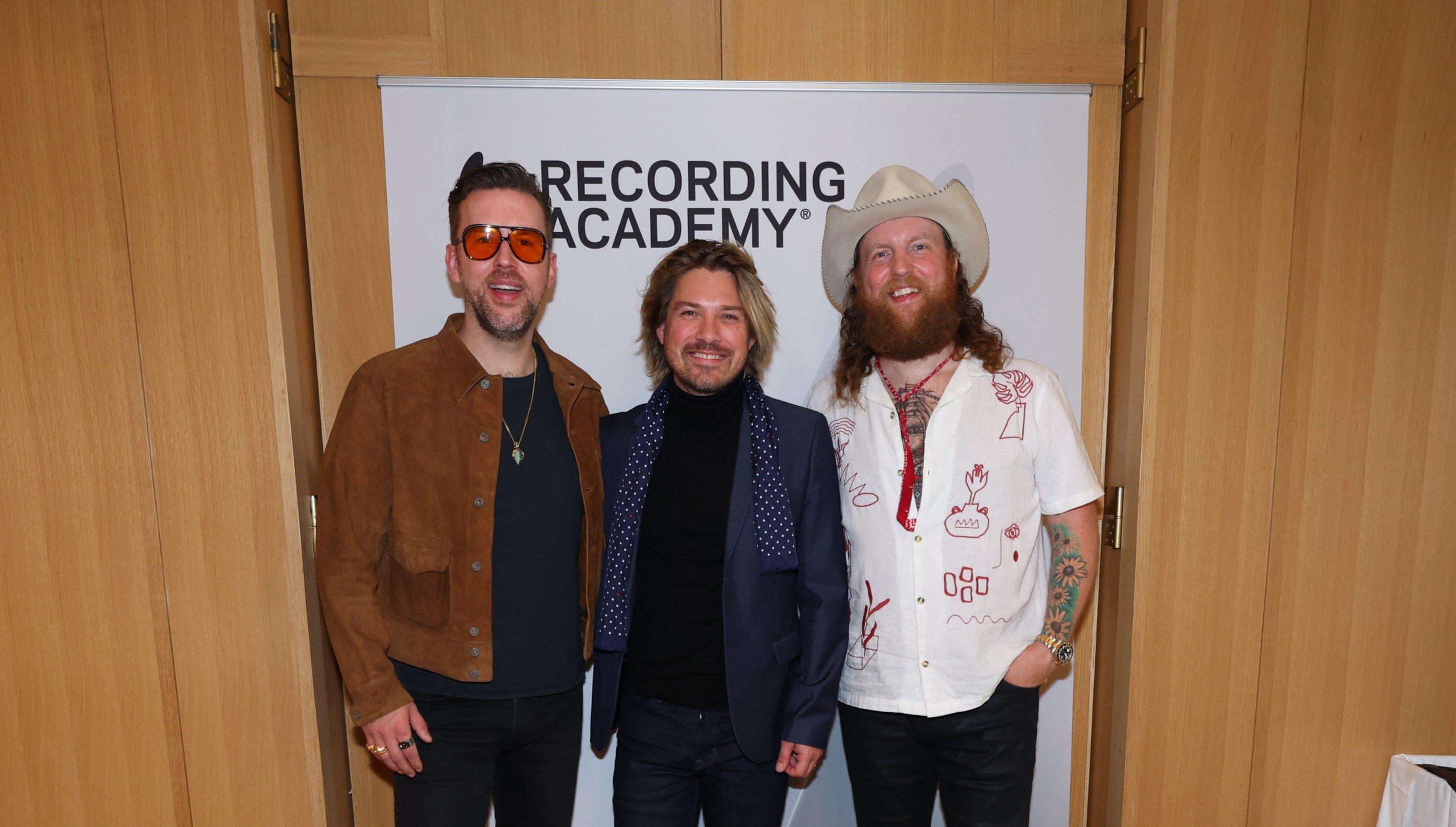Speaking during a virtual House Judiciary hearing on Feb. 2, Gloria Estefan extolled the transformative power of music.
"Each of the songs that are precious and meaningful to you was a labor of love for the songwriters, the artists, the musicians and producers that brought it to life," she said. "They poured their own hearts and souls into its creation."
The problem, though? "But when their music is played on the radio," Estefan continued, "Artists don't get paid, only the songwriters."
In the tableau of digital squares, the three-time GRAMMY winner and 12-time nominee wasn't alone in this assessment. Supporting her argument were Nashville musician Dave Pomeroy and Memphis Chapter Governor Lawrence “Boo” Mitchell — who testified with support from the Recording Academy’s Advocacy Team, and spoke from his experience as a producer, engineer, musician, and the co-owner of historic Royal Studios in Memphis, Tennessee.
"It's about the backbone — the people that make the music. I don't get promotion for 'Uptown Funk,'" Mitchell said in a follow-up Q&A, referring to the GRAMMY-winning hit Mark Ronson song — featuring Bruno Mars — that he co-produced. "It's not just about the featured artists, but the blue-collar people that go in to help make these great records."
Harvey Mason jr., the CEO of the Recording Academy, also chimed in with his own statement.
"Today's House Judiciary Committee hearing on the American Music Fairness Act gives lawmakers an opportunity to hear directly from music creators on the antiquated compensation practices by radio stations for their performances," he said.
"The work of artists like Boo Mitchell, Gloria Estefan and Dave Pomeroy should not be devalued to increase the bottom line of big radio conglomerates," Mason continued. "It's time for terrestrial radio to compensate creators fairly. Our hope is that listening to these musicians today will spur Congress toward action."
Read on for Mitchell's entire testimony exhorting for the passage of the American Music Fairness Act (AMFA), click here to access the recorded hearing, and click here to take action to support the AMFA.
Dear Chairman Nadler, Ranking Member Jordan, and members of the committee,
My name is Lawrence "Boo" Mitchell. I am a GRAMMY Award-winning Recording Engineer, Producer, Composer, Musician, and the co-owner of Royal Studios in Memphis, Tennessee. I am also a member of the Board of Governors of the Memphis Chapter of the Recording Academy. Best known for the GRAMMY Awards, the Recording Academy represents thousands of songwriters, performers, musicians, producers, and engineers across the country. Thank you for giving me the opportunity to testify today.
In 2014, I was visited here at Royal Studios by songwriters and producers Mark Ronson and Jeff Bhasker. After visiting the studio, Mark told me that he wanted to record his album here, including a track with Bruno Mars. Over the next several weeks, Mark, Bruno, Jeff, myself, and some of the finest musical talents from Memphis and around the country teamed up to record the song "Uptown Funk." "Uptown Funk" was released in November of 2014, and immediately charted on Billboard. Eventually, it became the number one song of the year. And then it became the number one song of the decade. "Uptown Funk" is currently fourth on Billboard's All-Time Hot 100 charts. In 2016, it won the GRAMMY Award for Record of the Year, the first record made in Memphis to win this honor.
"Uptown Funk" was also a huge hit on the radio. In 2015, "Uptown Funk" finished the year as the number one song on the mainstream Top 40 radio chart. To this day, it is one of the twenty most played songs of all time on mainstream top 40 radio in America.
But despite this historic airplay on the radio, no one involved in the recording of "Uptown Funk" has ever been paid by the radio broadcasters who used and profited from their work.
Because of a loophole in the copyright law, radio broadcasters are allowed to play sound recordings without asking for permission from the artists who created it and without paying them any compensation. They can play records on the air for free, and they use our music to sell billions of dollars worth of advertising. I can't think of another industry in America where you are allowed to take someone else's property and use it without permission or compensation.
But this story gets crazier. "Uptown Funk" wasn't just a big radio hit in the United States, it was a hit around the world. The track reached number one in Australia, Canada, Israel, New Zealand, and the U.K. In every single one of those countries, the broadcasters actually did pay royalties for playing the record. But I still didn't get paid.
You see, almost every other country in the world recognizes a public performance right for sound recordings on the radio, and they require broadcasters to pay royalties to artists and rights holders. But because we don't recognize a performance right here in the United States, foreign countries won't pay American artists the royalties we are due until the United States fixes the law and reciprocates. So, Mark Ronson, who was born in London and still lives there, can collect royalties from all the airplay that "Uptown Funk" has received around the world. But none of the American artists who collaborated with him can. Every year, American artists are losing hundreds of millions of dollars in international royalties that are owed to them.
More than two dozen individuals are credited on the recording of "Uptown Funk." While performance royalties from radio may not make a huge difference in the life of a super star like Bruno Mars, it would make all the difference in the world to me and to the other musicians, vocalists, and studio professionals that created this iconic track.
Fortunately, there is a reasonable, common-sense solution to fix this injustice. The American Music Fairness Act is a bipartisan bill introduced by Representatives Ted Deutch and Darrell Issa. This bill would establish a performance right for sound recordings played on AM/FM radio stations. Under the bill, artists, performers, vocalists, producers, and other music makers involved in the creation of a sound recording would receive fair market compensation for their music played on radio stations across the U.S., just like they currently receive on digital radio services.
Importantly, the bill also safeguards the royalties received by songwriters for airplay on the radio, and it also contains key protections for small broadcasters to ensure that local and community radio stations can continue to thrive.
"Uptown Funk" is just one illustration of how this injustice has hurt recording artists throughout history. This year happens to be the fiftieth anniversary of Al Green's legendary album Let's Stay Together, which was recorded at Royal Studios and produced, recorded, and mixed by my dad, Willie Mitchell. The title track was a number one hit and has been added to the National Recording Registry at the Library of Congress, but my dad, who passed away in 2010, never received a penny from radio for his work.
Fast-forward to today and we are still making hits in Memphis that you can hear on the radio. It was just about one year ago that I received another phone call, this time from Bruno Mars. He was working on a new project and wanted to add some of those grimy Memphis horns. Those horns can be heard on the new album Bruno recorded with Anderson .Paak under the name Silk Sonic. Their current single "Smokin Out The Window" is still on the charts and still on the radio, but the horn players I recorded with -- Kameron Whalum, Marc Franklin, Kirk Smothers, and Lannie McMillan – haven't received any compensation from broadcasters.
Some things have not changed from the time my dad opened Royal Studios to today. We still produce and record great music. And AM/FM radio stations still pay no royalties to performers. Time is running out to fix this injustice for the artists of my dad's generation, like the Rev. Al Green and the Rev. Charles Hodges. These artists aren't looking for free promotion to sell records or go on tour, they just want the compensation that they deserve but have long been denied. And a new generation is struggling to see if they can even make it in the music business.
The ongoing pandemic continues to disrupt touring and the live music sector, which makes it all the more important that artists are able to fully realize the value of their recorded music in order to make a living. The lost royalties from radio could make the difference in whether a musician can stay focused on their career or has to take a second or third job to get by.
Royal Studios is one of the oldest recording studios in the world, but we've struggled during these uncertain times as well. If we had been able to collect my dad's royalties from radio over the past fifty years, my small business and my family would be in better shape today.
Those who create music answer to a unique calling. It is not just a profession you choose, it's one that also chooses you. But today I'm calling on Congress to help us keep the music playing by ensuring that American Music Creators are fully compensated the way other Music Creators around the world are, whenever their work is used or exploited.
Please pass the American Music Fairness Act. Thank you.
The House Small Business Committee Puts A Spotlight On The Creative Economy: Here's What We Learned





